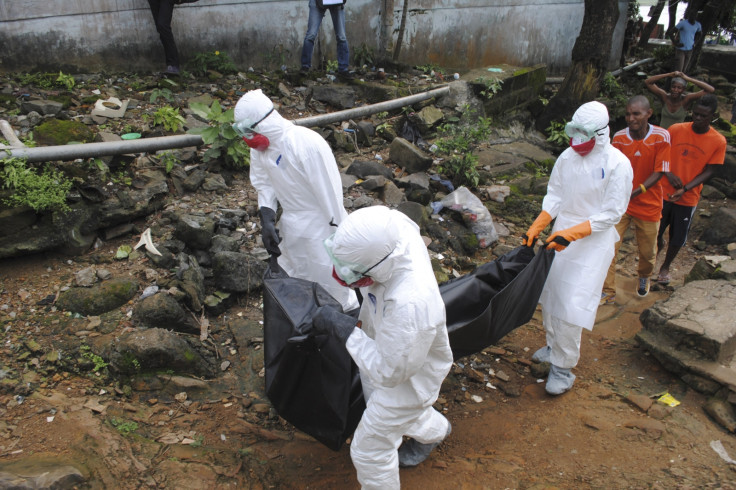Ebola Outbreak: First British Volunteer Receives Experimental Vaccine in Oxford Trial

The first healthy UK volunteer has received a candidate Ebola vaccine in a safety trial carried out by the University of Oxford.
The experimental vaccine has been co-developed by the US National Institutes of Health (NIH) and GlaxoSmithKline (GSK) against the Zaire species of Ebola, which caused the current outbreak in West Africa.
The UK trial is part of a series of safety tests of potential vaccines, which have been fast-tracked in response to this year's outbreak, the deadliest since the disease was discovered in 1976. To date, the current epidemic has killed more than 2,250 people.
The vaccine being tested uses a single Ebola protein to generate an immune response. As it does not contain infectious virus material, it cannot cause a person to become infected.
Ruth Atkins, 48, from Marcham, in Oxfordshire, was injected with the candidate Ebola vaccine on Wednesday morning after a thorough health assessment. She is the first of 60 volunteers to participate in the Oxford trial, which is being funded under a £2.8m Wellcome Trust grant.
Atkins, who has previously worked as a nurse in the NHS, said: "I volunteered because the situation in West Africa is so tragic and I thought being part of this vaccination process was something small I could do to hopefully make a huge impact."
Speaking an hour after the vaccination, she said she was "absolutely fine" and the injection felt no different to holiday inoculations.
The UK trial is being led by Professor Adrian Hill of the Jenner Institute at the university, and will run alongside similar trials in the US carried out by the National Institute of Allergy and Infectious Diseases (NIAID).
Hill said: "Witnessing the events in Africa makes it clear that developing new drugs and vaccines against Ebola should now be an urgent priority."
"These are initial safety trials of the vaccine and it will be some time before we know whether the vaccine could protect people against Ebola. But we are optimistic that the candidate vaccine may prove useful against the disease in the future."
The trial will ensure the vaccine does not cause any unforeseen side effects and will check the effectiveness of the injection, before it can be rolled out to larger at-risk populations.
The funding also enables GSK to begin manufacturing up to around 10,000 additional doses of the vaccine at the same time as the initial clinical trials, so that if the trials are successful stocks could then be made available immediately to the World Health Organization for an emergency immunisation programme.
Researchers hope the phase one trials will be completed by the end of 2014, so the vaccine can be deployed if deemed safe.
International development secretary Justine Greening said: "The UK has been on the front foot from the outset to help West Africa combat the world's worst Ebola outbreak. We have provided £25.5m to agencies providing critical care, deployed scientists to better understand the disease and we are building a treatment centre in Sierra Leone."
© Copyright IBTimes 2025. All rights reserved.






















